Explore Tel Aviv in 1 Day: A Comprehensive Itinerary
Tel Aviv, Israel
1 days
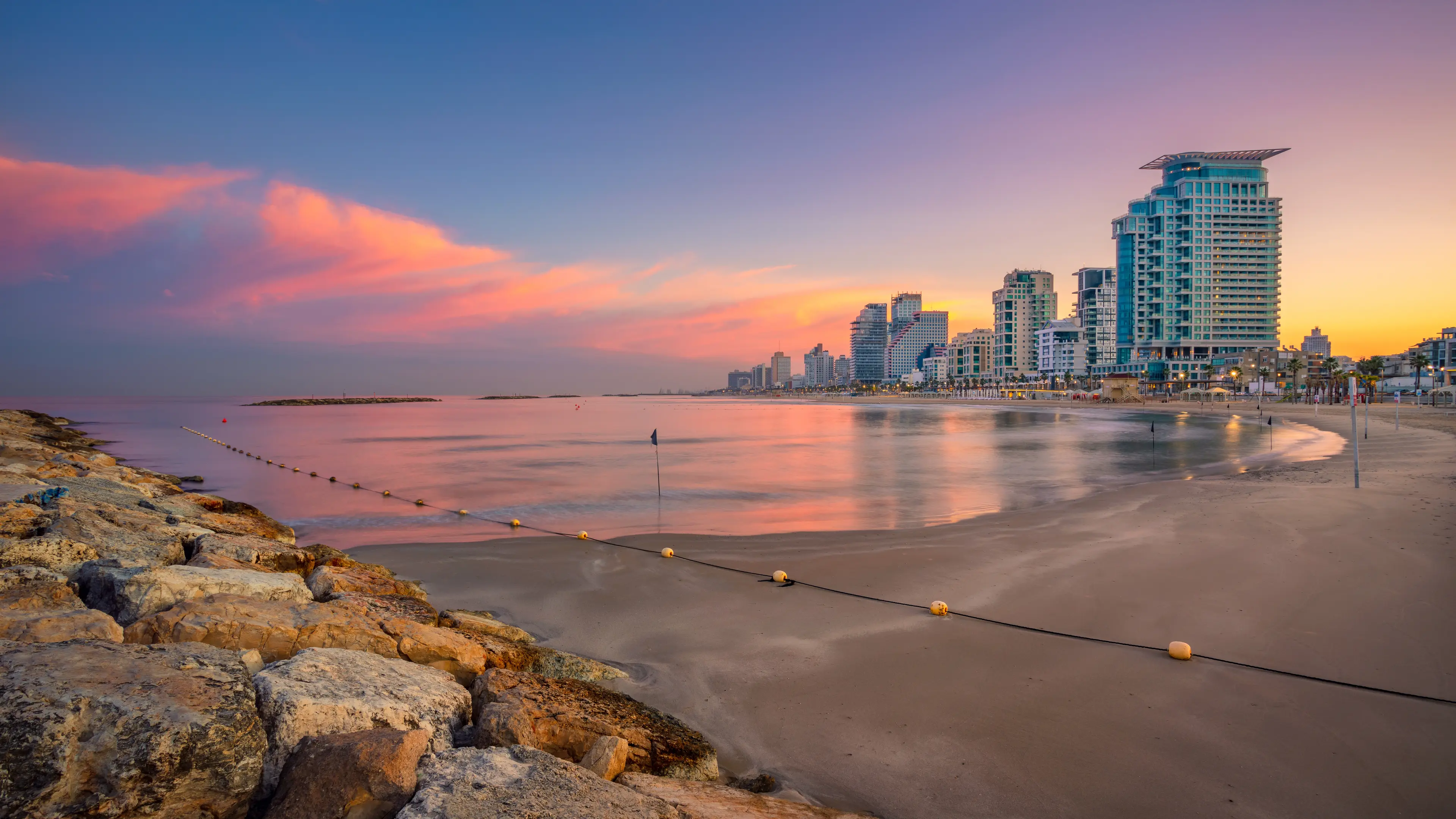
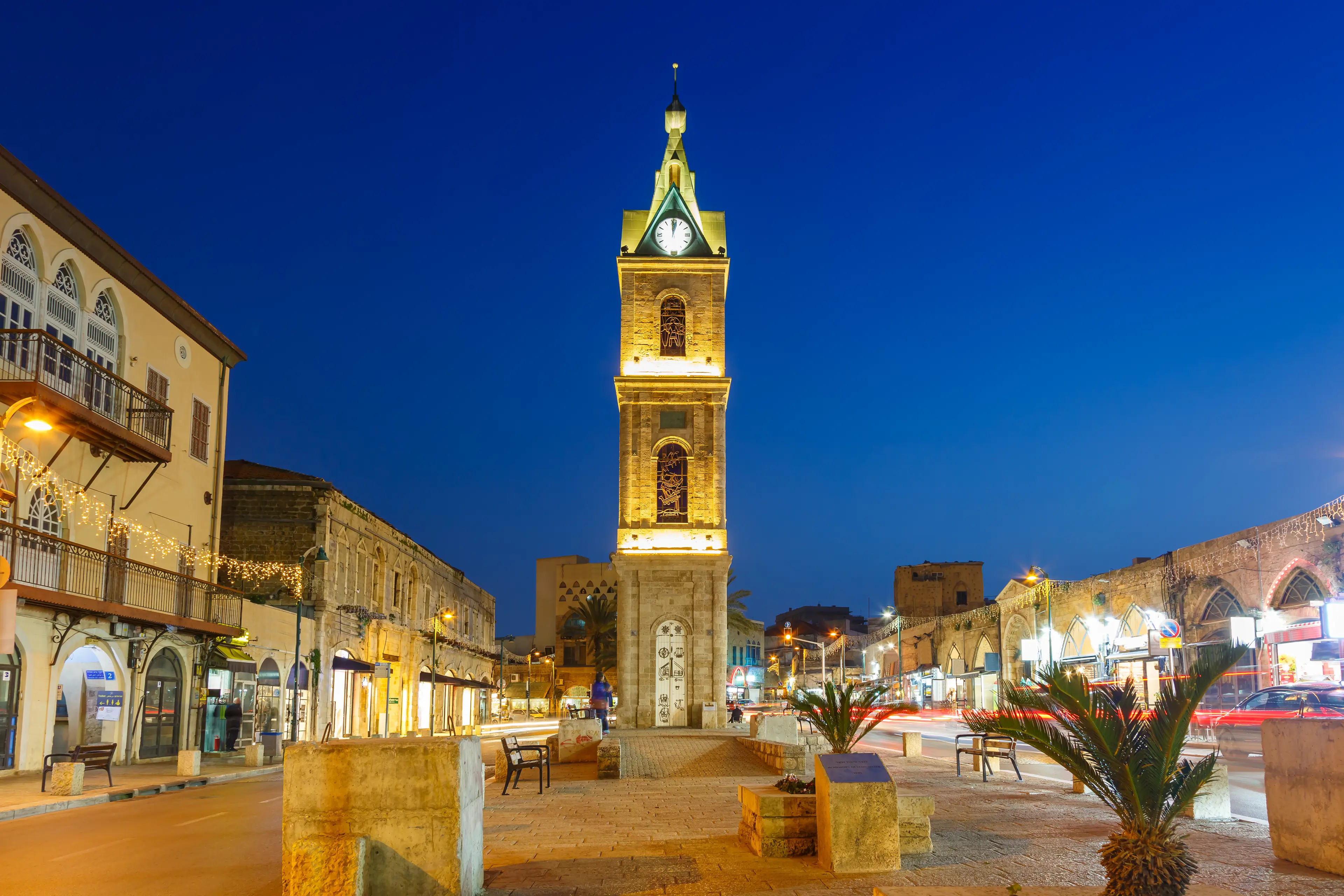
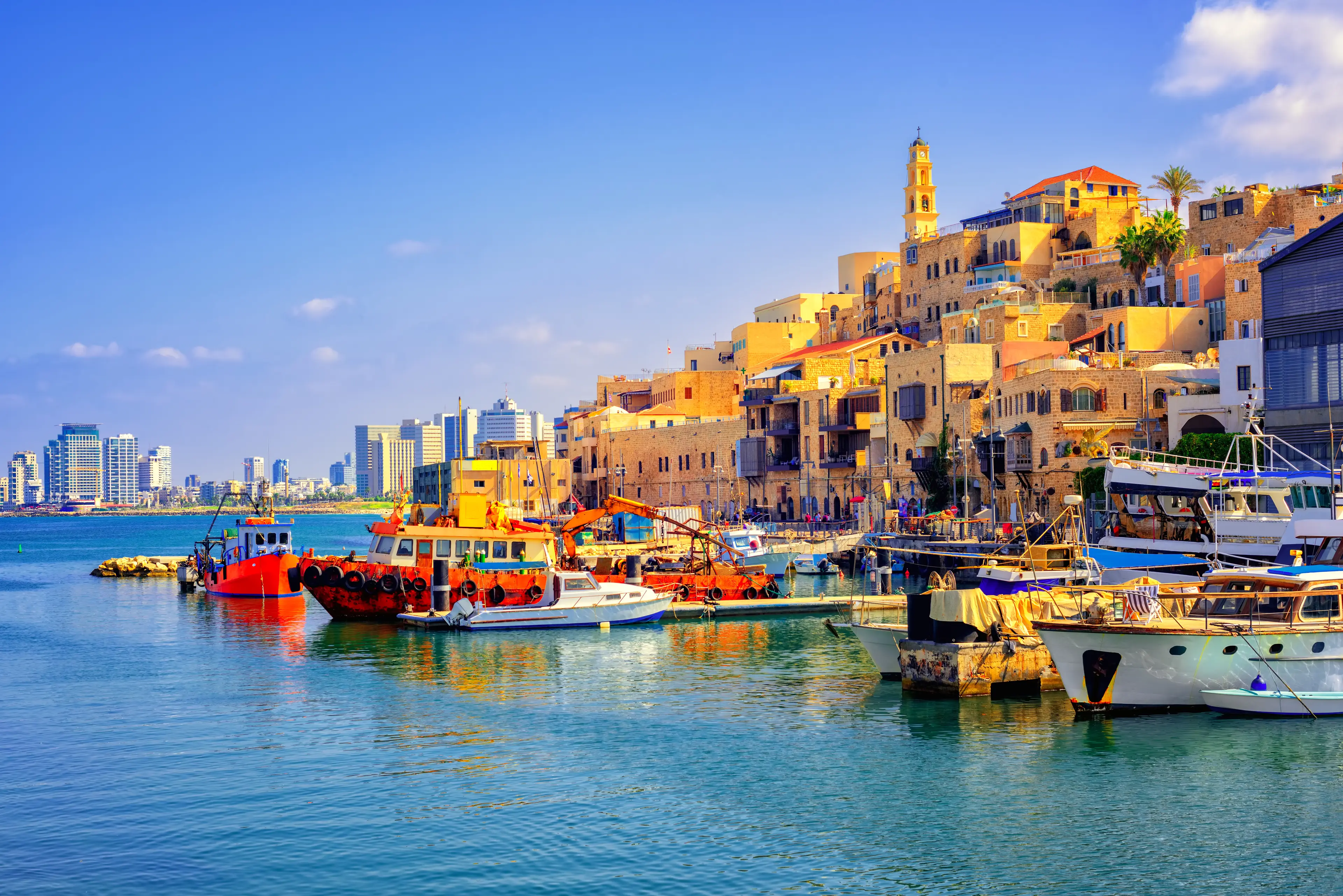
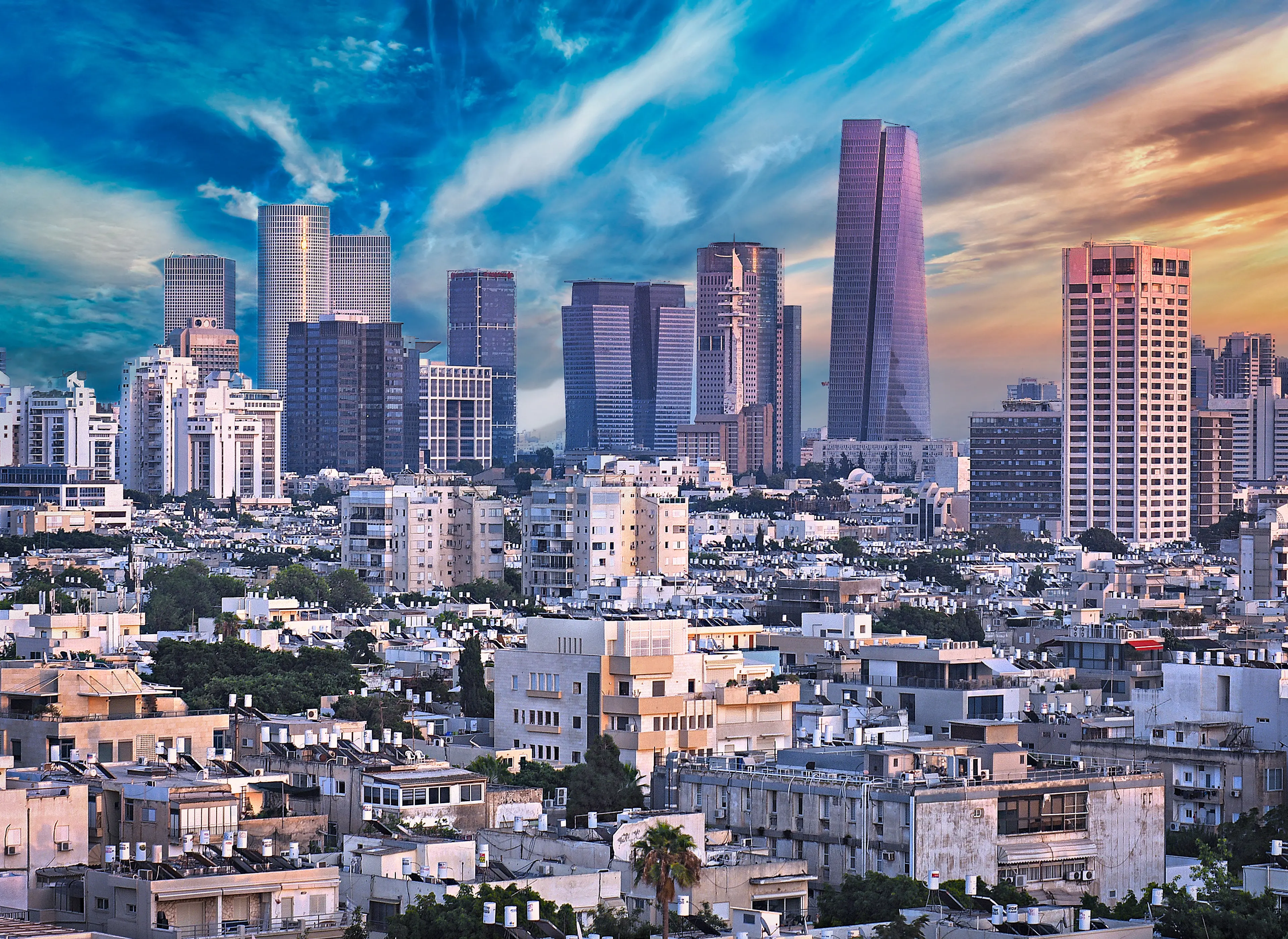
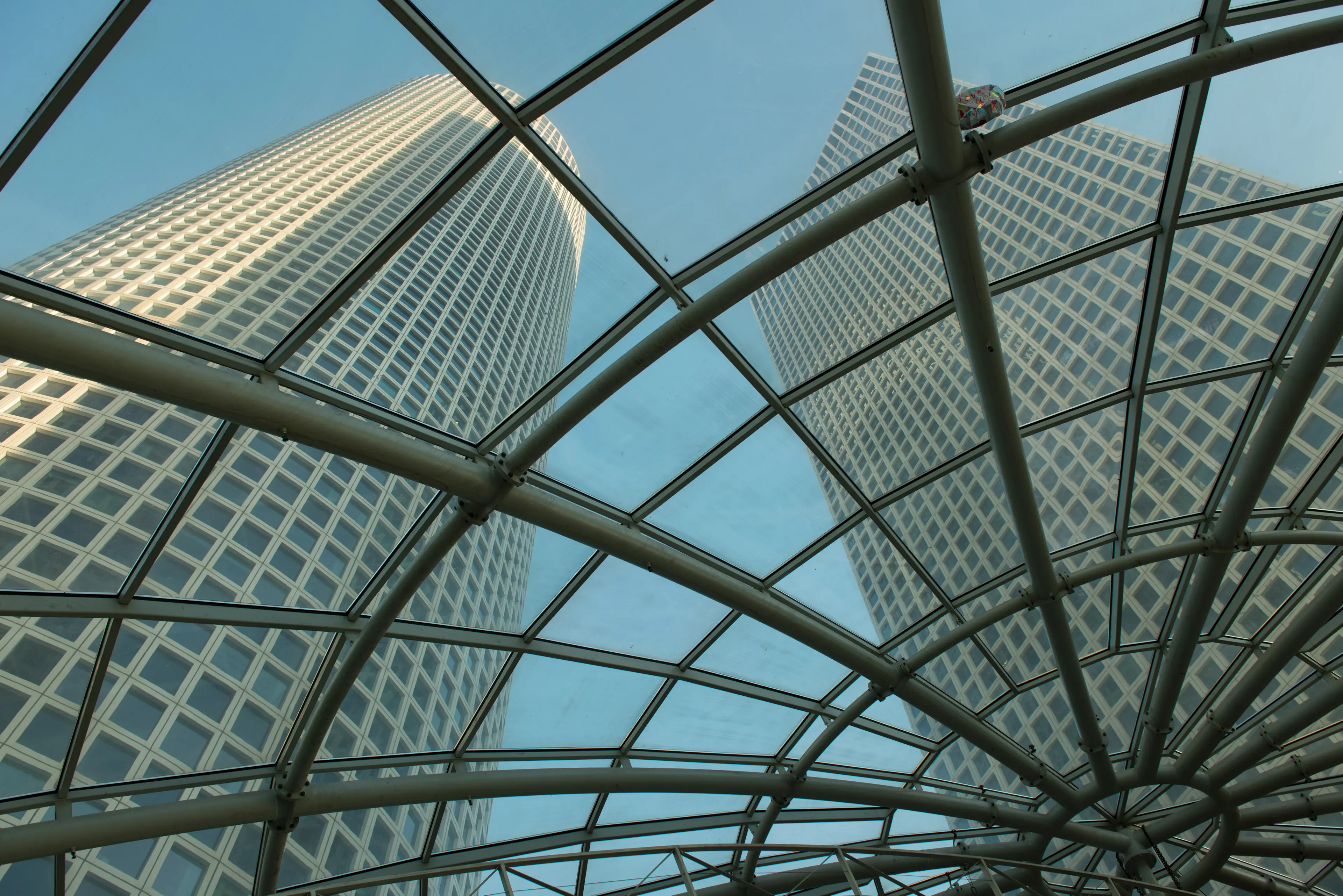
About Tel Aviv, Israel
Experience the vibrant energy of Tel Aviv, Israel's cultural and financial hub. This cosmopolitan city boasts a mix of modern skyscrapers, historic architecture, bustling markets, and serene parks. Explore the ancient port city of Jaffa, stroll down Rothschild Boulevard with its unique Bauhaus architecture, or relax on the sun-kissed beaches along the Mediterranean Sea. Tel Aviv's nightlife is legendary, with a plethora of bars, clubs, and restaurants to choose from. The city is also a gastronomic paradise, offering a fusion of Middle Eastern and Mediterranean cuisines. Don't miss the Eretz Israel Museum and the Palmach Museum for a glimpse into Israel's rich history. Tel Aviv, a city that never sleeps, promises an unforgettable travel experience.
1-Day Itinerary
Attractions in Itinerary (4)
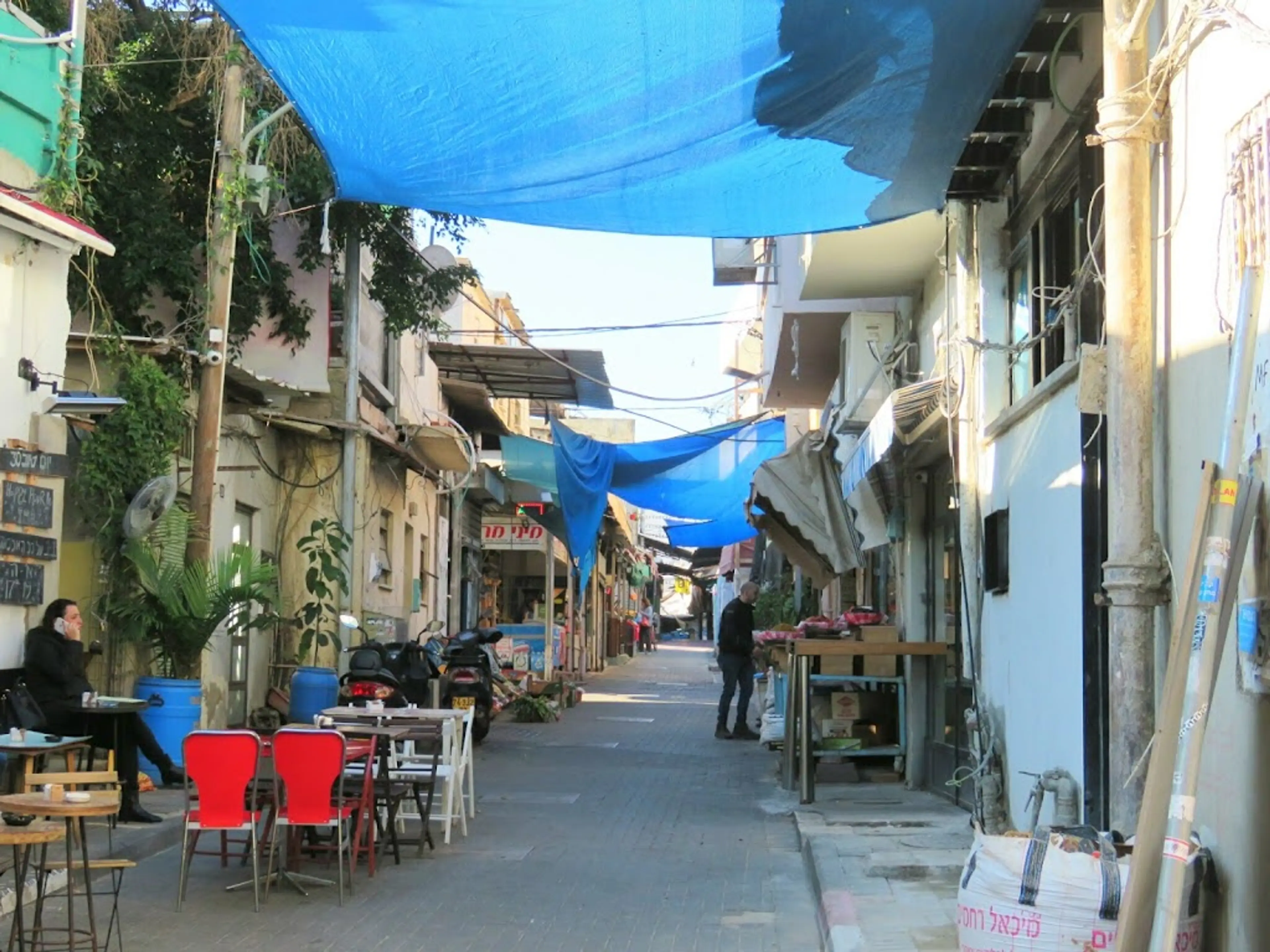
1Carmel Market
One of the most famous markets in Tel Aviv, offering a wide variety of foods, spices, and local products.
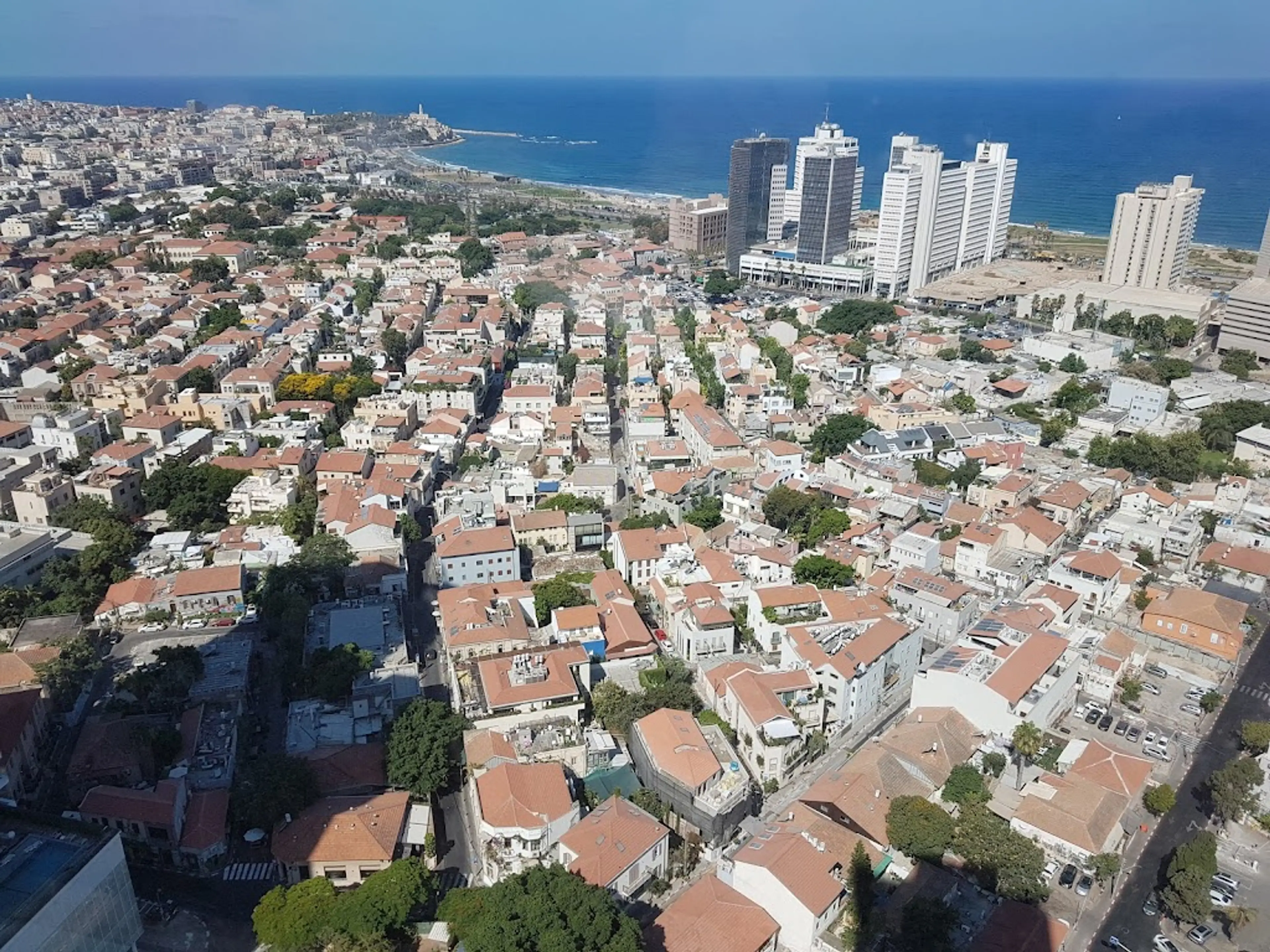
2Neve Tzedek
One of the oldest neighborhoods in Tel Aviv, known for its charming old-world atmosphere and vibrant cultural scene.
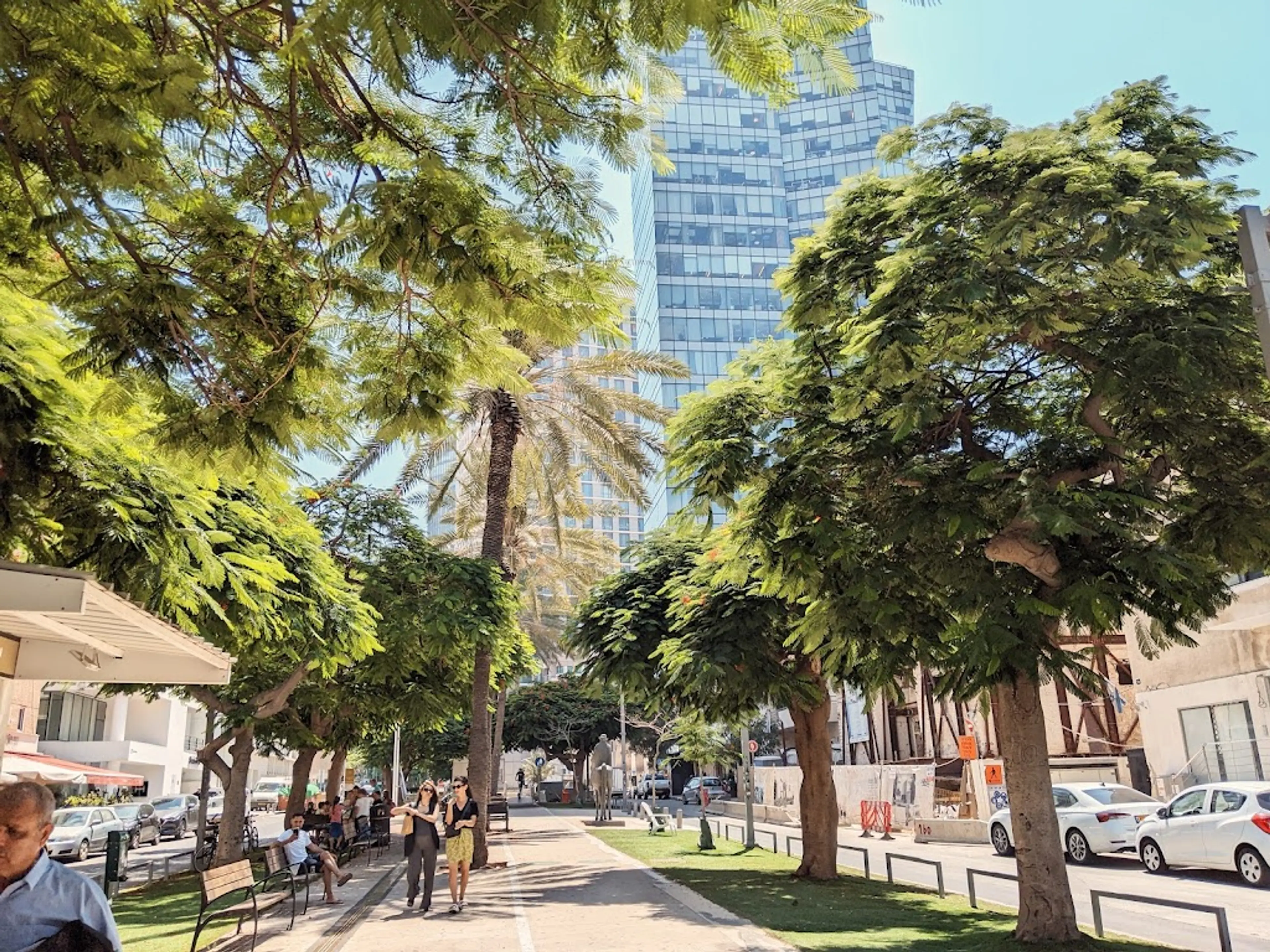
3Rothschild Boulevard
A famous boulevard known for its iconic Bauhaus buildings, trendy cafes, and the Independence Hall.
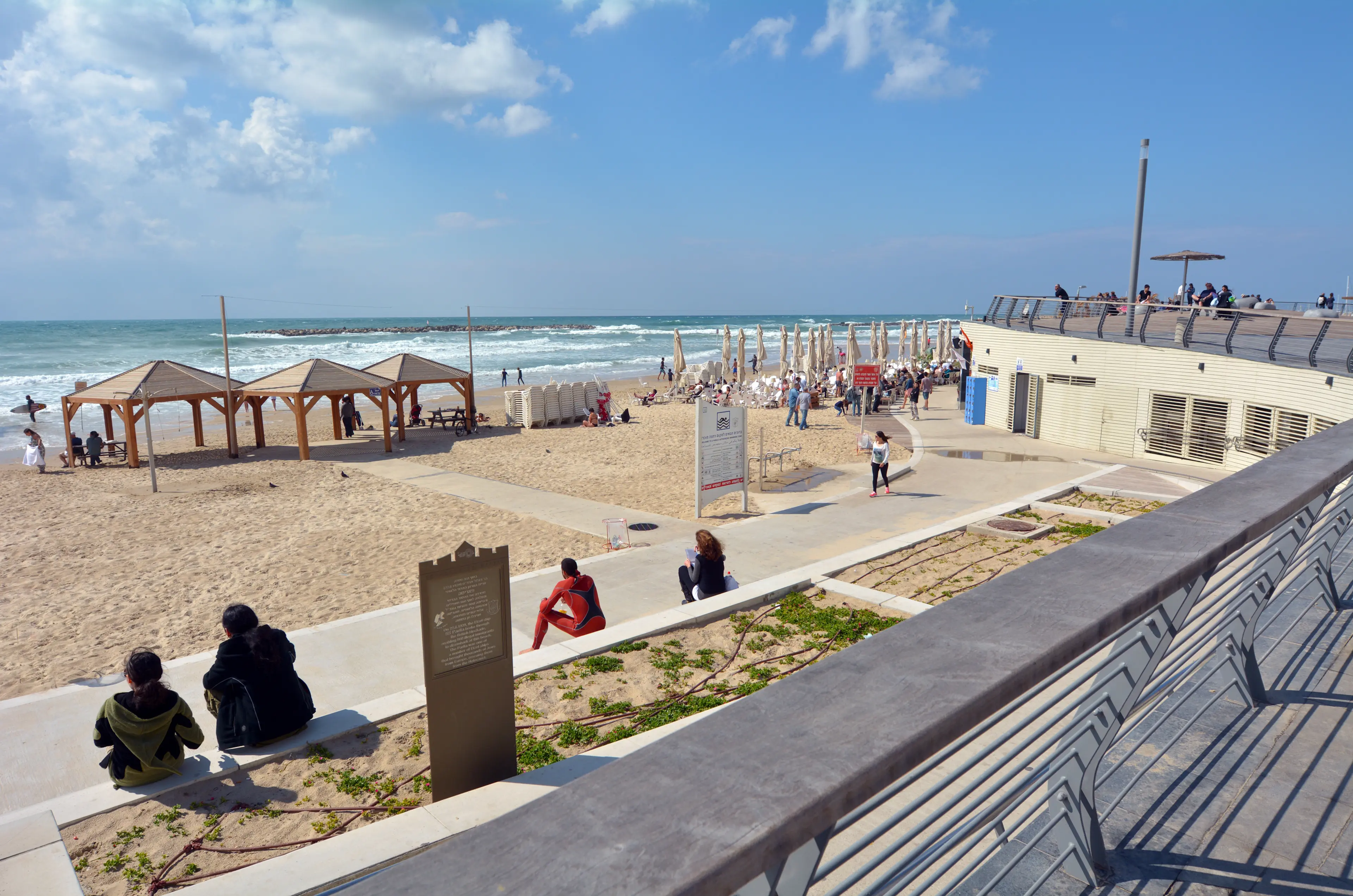
4Tel Aviv Beachfront
The Tel Aviv Beachfront is a bustling area with a beautiful sandy beach, vibrant nightlife, and numerous restaurants and bars. It's a popular spot for locals and tourists alike to relax, swim, and enjoy the Mediterranean sun.
Local Food and Drinks (12)
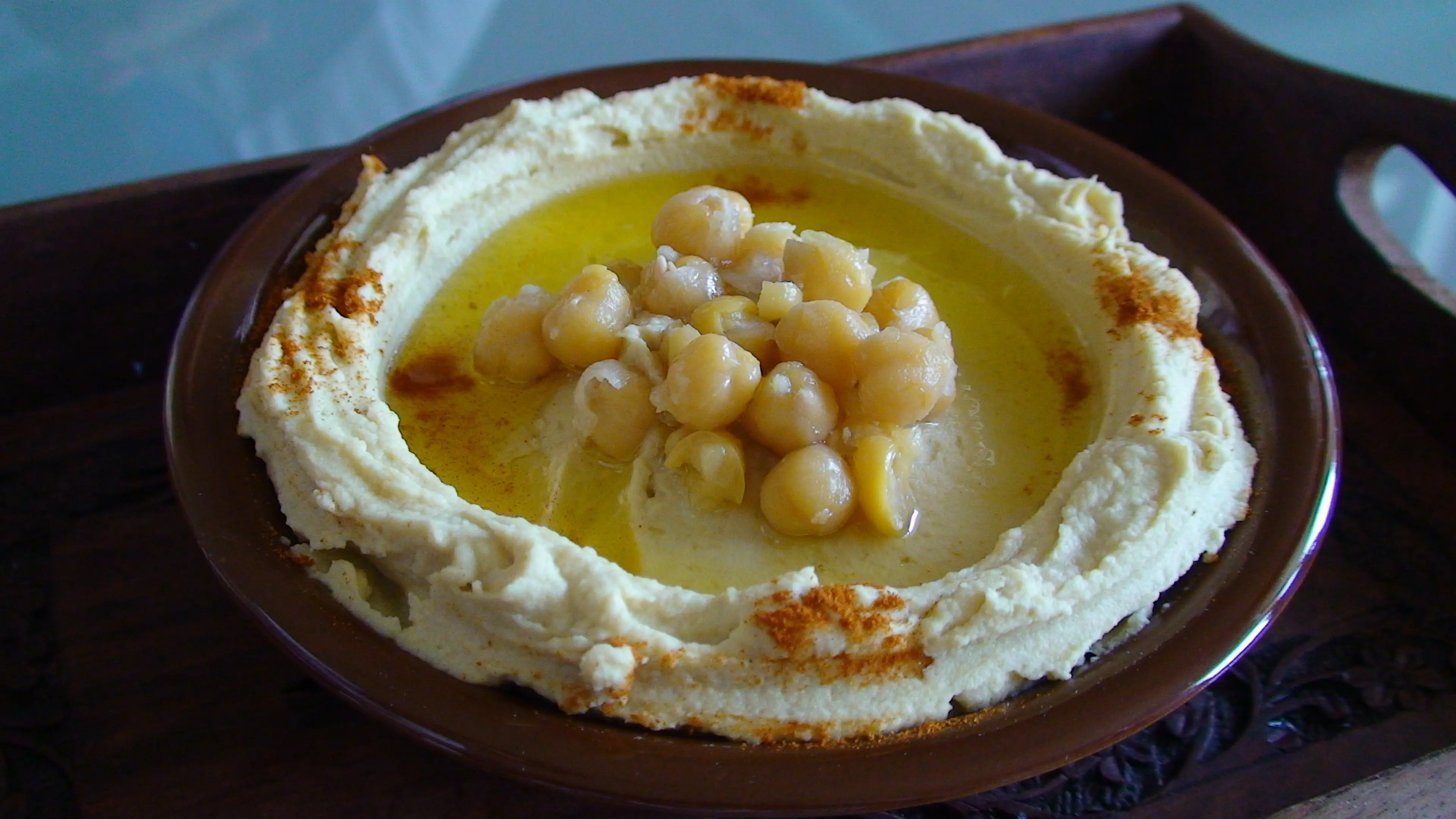
Hummus
A creamy chickpea spread, hummus is a staple in Israeli cuisine. It is often served with fresh pita bread and is a must-try when in Tel Aviv.

Shakshuka
Shakshuka is a popular breakfast dish in Tel Aviv. It consists of poached eggs in a sauce of tomatoes, chili peppers, and onions, often spiced with cumin.
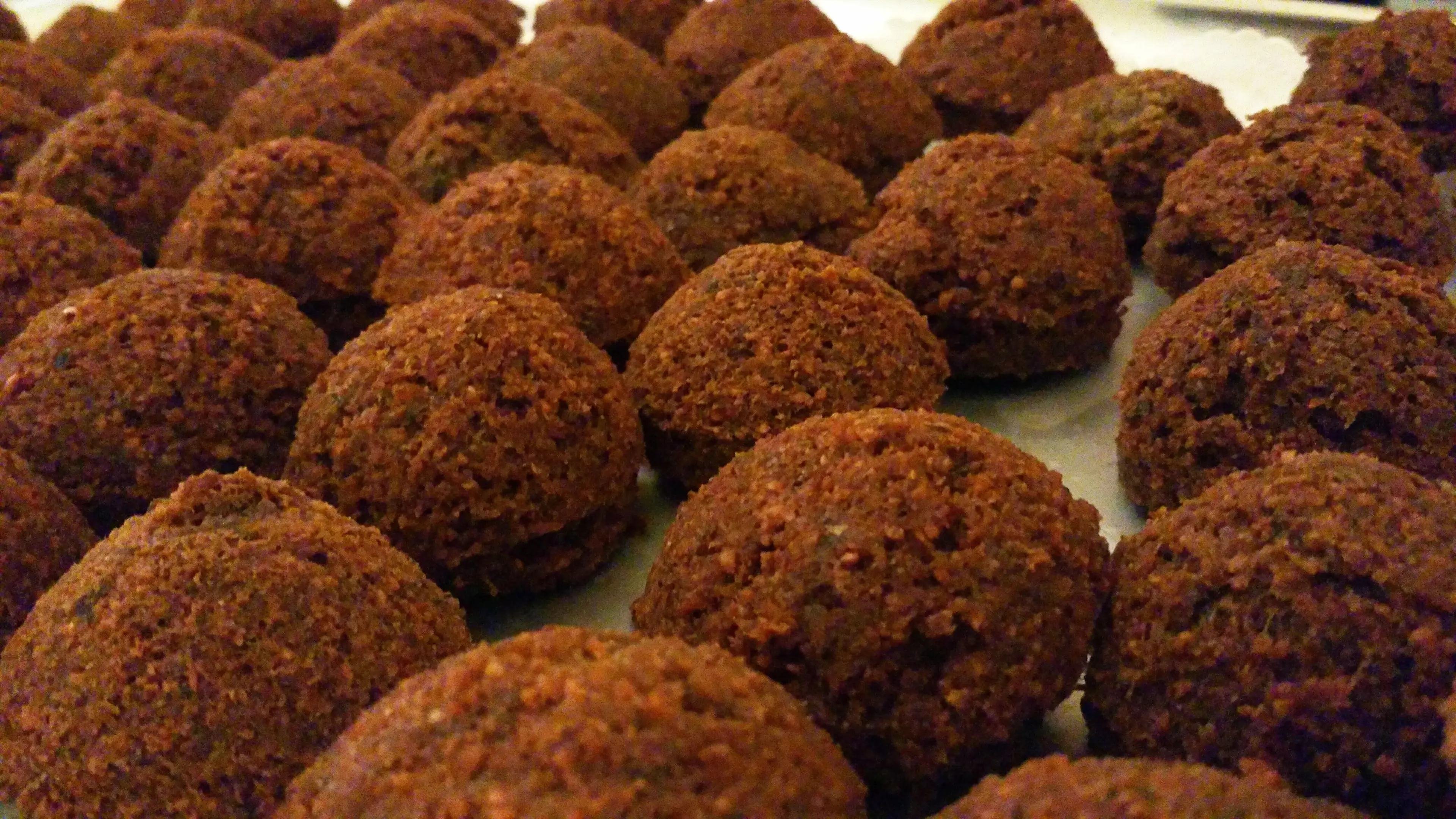
Falafel
Falafel is a deep-fried ball made from ground chickpeas. It is a common street food in Tel Aviv and is often served in a pita with salad, pickled vegetables, hummus, and tahini sauce.

Sabich
Sabich is a traditional Israeli sandwich. It consists of pita bread stuffed with fried eggplant, hard boiled eggs, salad, parsley, and tahini sauce.
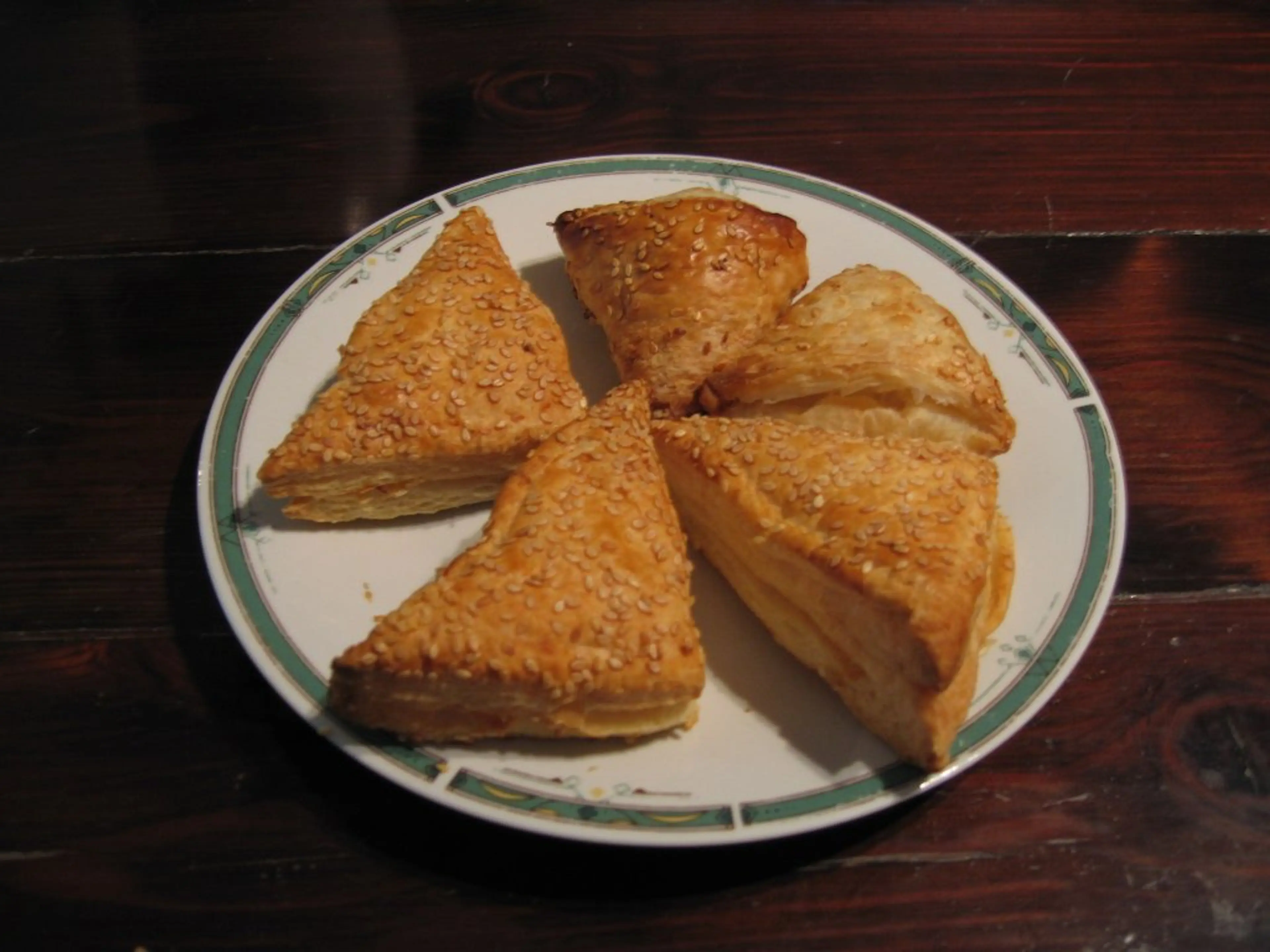
Bourekas
Bourekas are a type of baked or fried filled pastry. They are made of a thin flaky dough and filled with cheese, spinach, or mashed potatoes.

Bamba
Bamba is a popular Israeli snack. It is a peanut butter-flavored puffed corn snack and is a favorite among locals and tourists alike.
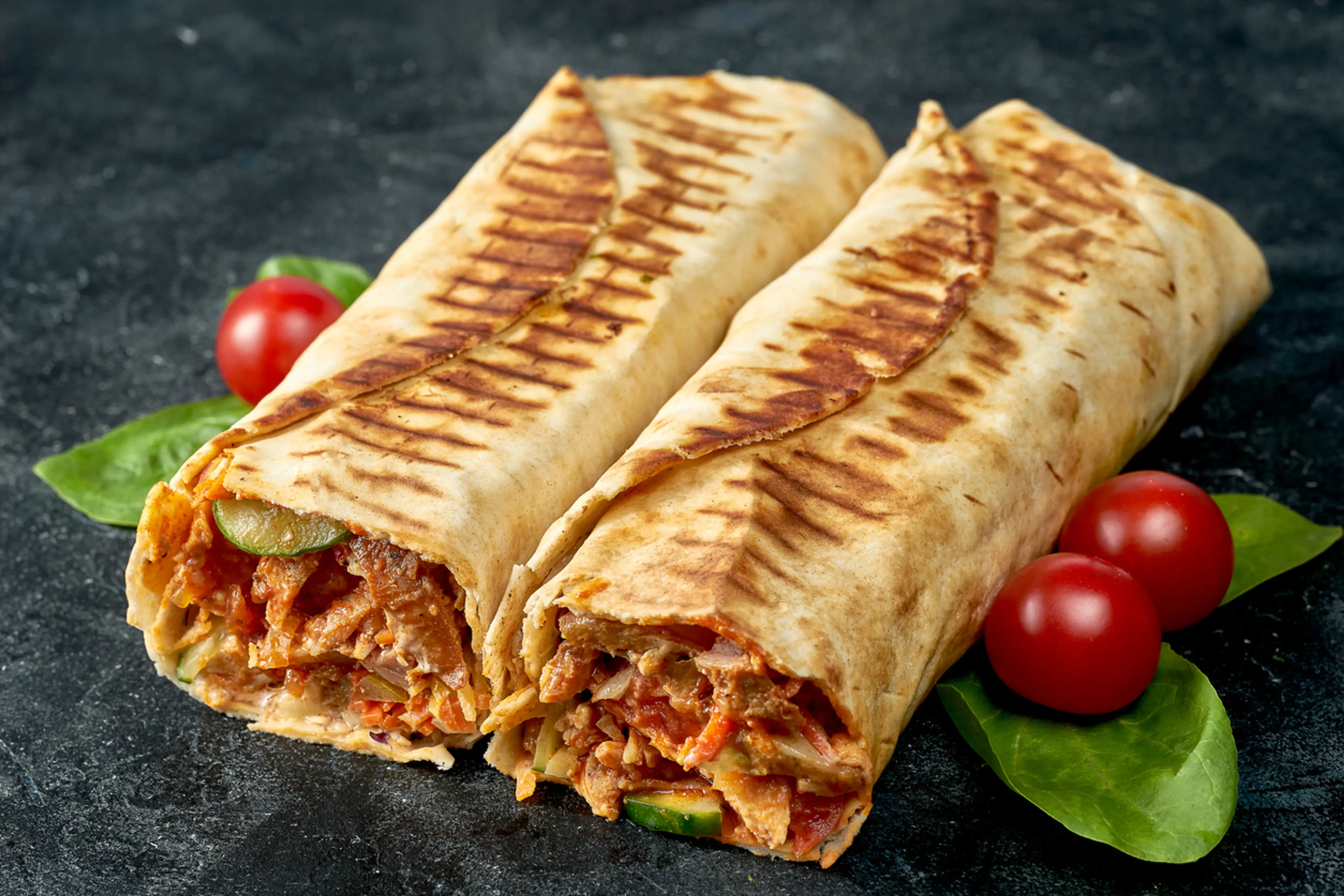
Shawarma
Shawarma is a Middle Eastern meat preparation, where lamb, chicken, turkey, beef, veal, or mixed meats are placed on a spit and may be grilled for as long as a day.
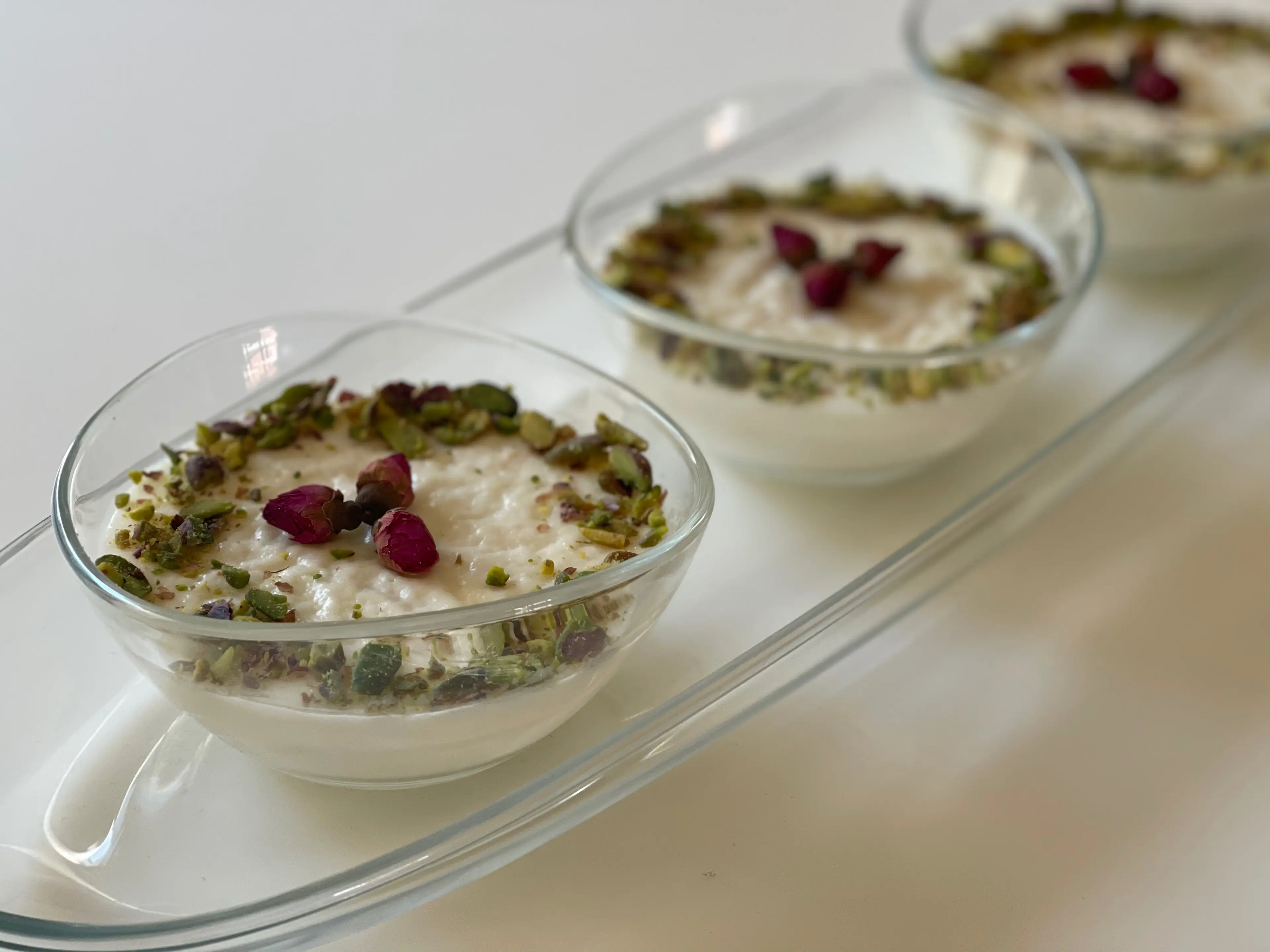
Malabi
Malabi is a popular dessert in Tel Aviv. It is a creamy milk pudding that is usually flavored with rose water and topped with a sweet syrup and nuts.

Israeli Salad
Israeli Salad is a chopped salad of finely diced tomato, onion, cucumber, and bell or chili peppers. It is a common accompaniment to many meals in Tel Aviv.

Jachnun
Jachnun is a traditional Yemenite Jewish dish that is popular in Israel. It is a slow-cooked pastry that is typically served for breakfast on Shabbat.
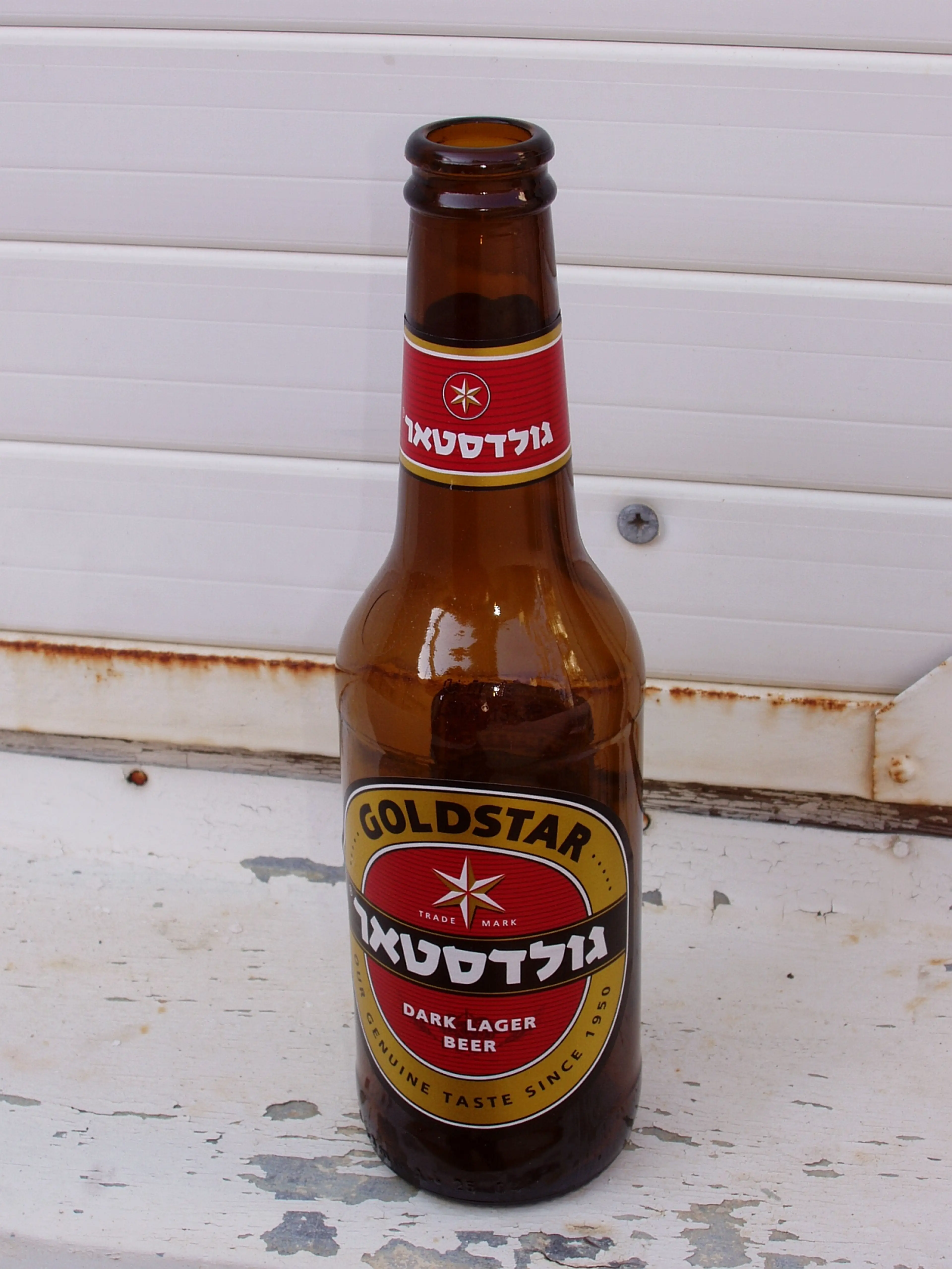
Goldstar Beer
Goldstar Beer is a popular Israeli beer. It is a lager style beer and is often enjoyed in the bustling nightlife of Tel Aviv.
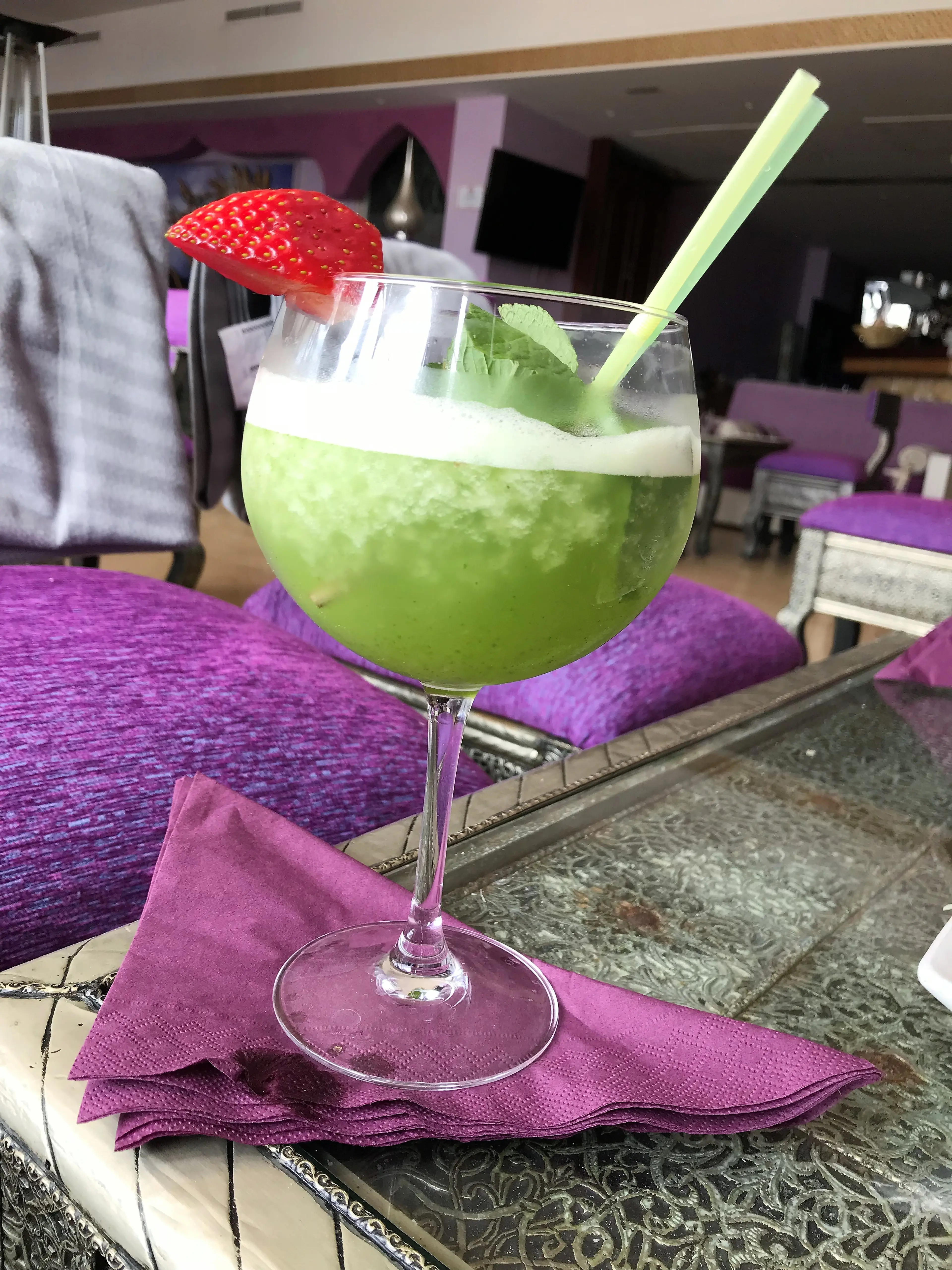
Limonana
Limonana is a type of lemonade made from freshly-squeezed lemons and mint. It is a popular refreshing drink in Tel Aviv, especially during the hot summer months.
Best time to visit
The best time to visit Tel Aviv, Israel is during the spring (April and May) or autumn (September and October). During these months, the weather is pleasantly warm with less humidity, making it perfect for sightseeing and beach activities. These periods also avoid the high tourist season of summer, offering a more relaxed experience. However, if you're interested in cultural events, consider visiting in May for the Docaviv Film Festival or in September for the Tel Aviv Night Run.
How to get around
Bus
Tel Aviv has an extensive bus network operated by several companies, with the main one being Dan Bus Company. Buses are a popular way to get around the city and they cover most areas. You can pay for your bus fare with a Rav Kav card, which can be topped up with money or travel passes.
Train
Israel Railways operates train services in Tel Aviv. The city has four main stations: Tel Aviv Savidor Central, Tel Aviv HaHagana, Tel Aviv HaShalom, and Tel Aviv University. Trains are a convenient way to travel between cities and to the airport.
Bicycle
Tel Aviv is a bike-friendly city with many dedicated bike lanes. The city operates a bike-sharing program called Tel-O-Fun, where you can rent a bike for a short period of time. It's a great way to explore the city at your own pace.
Car Rental
Renting a car can be a good option if you plan to travel outside of Tel Aviv. However, traffic can be heavy and parking can be difficult in the city center. Most international car rental companies have offices in Tel Aviv.
Ridesharing
Ridesharing services like Uber and Gett are available in Tel Aviv. They can be a convenient way to get around, especially if you're not familiar with the local public transportation system. However, note that Uber operates differently in Israel - it connects riders with licensed taxi drivers rather than private car owners.
Taxi
Taxis are widely available in Tel Aviv. They can be hailed on the street, booked in advance, or found at taxi stands. All taxis in Israel are metered, and it's customary to tip the driver.
Shared Taxi (Sherut)
Sheruts are shared taxis that operate on fixed routes, similar to buses. They can be a cost-effective way to travel, especially on Shabbat when many other forms of public transportation do not operate.
Foot
Tel Aviv is a walkable city, especially in areas like the White City, Jaffa, and along the beach promenade. Walking can be a pleasant way to explore the city, especially in good weather.
Scooter
Electric scooters are a popular way to get around in Tel Aviv. Several companies, like Bird and Lime, operate scooter-sharing services in the city. You can rent a scooter using a smartphone app.
Important information
Currency₪ ILS
Time zoneUTC+2
Driving sideRight
Emergency phoneAmbulance: 101; Fire: 102; Police: 100
Drinking waterYes, but many opt for bottled water
Power sockets
Voltage230 V
Things to know about Tel Aviv, Israel as a first time visitor
1
Tel Aviv is a cosmopolitan city with a vibrant nightlife and a diverse food scene.
2
The official language is Hebrew, but English is widely spoken and understood.
3
The local currency is the Israeli Shekel (ILS). Credit cards are widely accepted, but it's a good idea to have some cash for smaller establishments or street vendors.
4
Tel Aviv is generally safe for tourists, but like any major city, it's important to be aware of your surroundings and take precautions against pickpocketing.
5
The city is very walkable, and there's also a reliable public transportation system, including buses, taxis, and a bike-sharing program.
6
The weather in Tel Aviv is Mediterranean, with hot, humid summers (June to September) with temperatures ranging from 75°F to 88°F (24°C to 31°C), and mild, rainy winters (December to February) with temperatures ranging from 50°F to 66°F (10°C to 19°C).
7
Dress code is generally casual, but modest attire is recommended when visiting religious sites.
8
Tipping is customary in Tel Aviv. It's usual to leave a 10-15% tip in restaurants.
9
Israel operates on the standard Israeli time (IST), which is 2 hours ahead of Coordinated Universal Time (UTC+2).
10
The standard voltage in Israel is 230 V, and the frequency is 50 Hz. The power plugs and sockets are of type H.
11
Tap water is safe to drink, but bottled water is widely available if you prefer.
12
Israel has a universal healthcare system, but travel insurance is recommended for unexpected medical costs or emergencies.
13
Israelis are known for their directness and honesty, which can sometimes come off as rudeness to foreigners. It's important to not take it personally.
14
Friday evening to Saturday evening is Shabbat, the Jewish day of rest. Many businesses close during this time, especially in more religious neighborhoods.
15
Tel Aviv is known for its LGBTQ+ friendly atmosphere and hosts a large Pride parade every year.
16
The city has a 'White City' area, which is a UNESCO World Heritage site due to its collection of over 4,000 Bauhaus-style buildings.
17
Tel Aviv has a vibrant street art scene, especially in the Florentin neighborhood.
18
The city is known for its tech start-up scene and is often referred to as the 'Silicon Wadi'.
19
Tel Aviv has a 'siesta' culture similar to Spain, with many businesses closing for a few hours in the afternoon.
20
The city is very dog-friendly, with many parks, beaches, and restaurants welcoming four-legged friends.
Basic Hebrew to know as a first time visitor
English phrase | Native phrase | Pronunciation | When to use it |
|---|---|---|---|
Hello | שלום | Shalom | Greeting someone |
Goodbye | להתראות | Lehitraot | Saying goodbye |
Please | בבקשה | Bevakasha | Making a request |
Thank you | תודה | Toda | Expressing gratitude |
Yes | כן | Ken | Agreeing or confirming |
No | לא | Lo | Disagreeing or denying |
Excuse me | סליחה | Slicha | Getting attention or apologizing |
I don't understand | אני לא מבין | Ani lo mevin | When you don't understand something |
Do you speak English? | אתה מדבר אנגלית? | Ata medaber anglit? | Trying to find someone who speaks English |
I need help | אני צריך עזרה | Ani tzarich ezra | When you need assistance |
Where is the bathroom? | איפה השירותים? | Eifo ha'sherutim? | Looking for the bathroom |
How much does it cost? | כמה זה עולה? | Kama ze oleh? | Asking for the price |
I would like to order | אני רוצה להזמין | Ani rotze lehazmin | Ordering food or drink |
Water | מים | Mayim | Asking for water |
Beer | בירה | Bira | Ordering a beer |
Wine | יין | Yayin | Ordering wine |
Check, please | חשבון, בבקשה | Heshbon, bevakasha | Asking for the bill |
Where is...? | איפה...? | Eifo...? | Asking for directions |
Help! | עזרה! | Ezra! | In an emergency |
Call the police | קרא למשטרה | Kra lemishtara | In an emergency |
Packing List
Clothing
Lightweight clothing
Comfortable walking shoes
Swimwear
Sunglasses
Hat
Light jacket or sweater for cooler evenings
Toiletries
Travel-sized shampoo and conditioner
Toothbrush and toothpaste
Deodorant
Sunscreen
Hand sanitizer
Face mask
Travel documents and essentials
Passport
Driver's license or ID card
Credit and debit cards
Health insurance card
Printed hotel and flight confirmations
Emergency contact information
Electronics and gadgets
Smartphone
Charger for smartphone
Headphones
Camera
Adapter for Israeli outlets
Miscellaneous items
Snacks
Bottled water
Travel guidebook for Tel Aviv
Map of Tel Aviv
Phrasebook or language app for Hebrew
Reusable shopping bag
Weather Conditions
Tel Aviv, Israel, is known for its Mediterranean climate, which means it experiences hot, dry summers and mild, wet winters. If you're planning to visit during the summer months, which are from June to September, expect temperatures to range from 75°F to 88°F (24°C to 31°C). It's advisable to pack light clothing, sunscreen, and a hat to protect yourself from the intense sun. Also, remember to stay hydrated, especially if you're planning to explore the city on foot. The winter months, from December to February, are much cooler with temperatures ranging from 50°F to 66°F (10°C to 19°C). Rainfall is also more common during this period, so packing an umbrella or raincoat would be wise. Despite the rain, winter can be a great time to visit if you prefer cooler temperatures and fewer crowds. The shoulder seasons, spring (March to May) and autumn (October and November), offer more moderate temperatures. In spring, temperatures range from 60°F to 77°F (16°C to 25°C), while in autumn, they range from 66°F to 82°F (19°C to 28°C). These periods can be an ideal time to visit, as the weather is pleasant and tourist crowds are smaller. Regardless of when you visit, it's always a good idea to check the local weather forecast before your trip to ensure you're packing appropriately. Also, remember that Tel Aviv is a coastal city, so conditions can change quickly, and it can get quite windy, especially in the evenings. Enjoy your visit to Tel Aviv!
| Month | Hi / Lo (°C) | Weather Overview |
|---|---|---|
January | 18° / 8° | January is the coldest month in Tel Aviv, but it's still relatively mild with occasional rain. |
February | 19° / 9° | February is slightly warmer than January, with a mix of sunny and rainy days. |
March | 21° / 11° | March sees the beginning of spring, with temperatures rising and rain becoming less frequent. |
April | 25° / 14° | April is a pleasant month with warm temperatures, making it a good time for outdoor activities. |
May | 28° / 18° | May is the start of the summer season, with hot days and warm nights. |
June | 30° / 21° | June is a hot month, with plenty of sunshine and almost no rain. |
July | 32° / 24° | July is one of the hottest months, with high humidity and very little rain. |
August | 33° / 24° | August is the peak of summer, with high temperatures and humidity. |
September | 31° / 23° | September is still quite hot, but temperatures begin to drop slightly towards the end of the month. |
October | 28° / 19° | October is a comfortable month, with moderate temperatures and less humidity. |
November | 24° / 15° | November sees the start of the cooler season, with mild temperatures and occasional rain. |
December | 20° / 11° | December is a mild winter month, with cooler temperatures and a higher chance of rain. |
Did you know?
Places near by Tel Aviv, Israel

Caesarea
Ancient Roman city with a national park, amphitheater, and harbor.

Jerusalem
Historic city with religious significance and cultural landmarks.
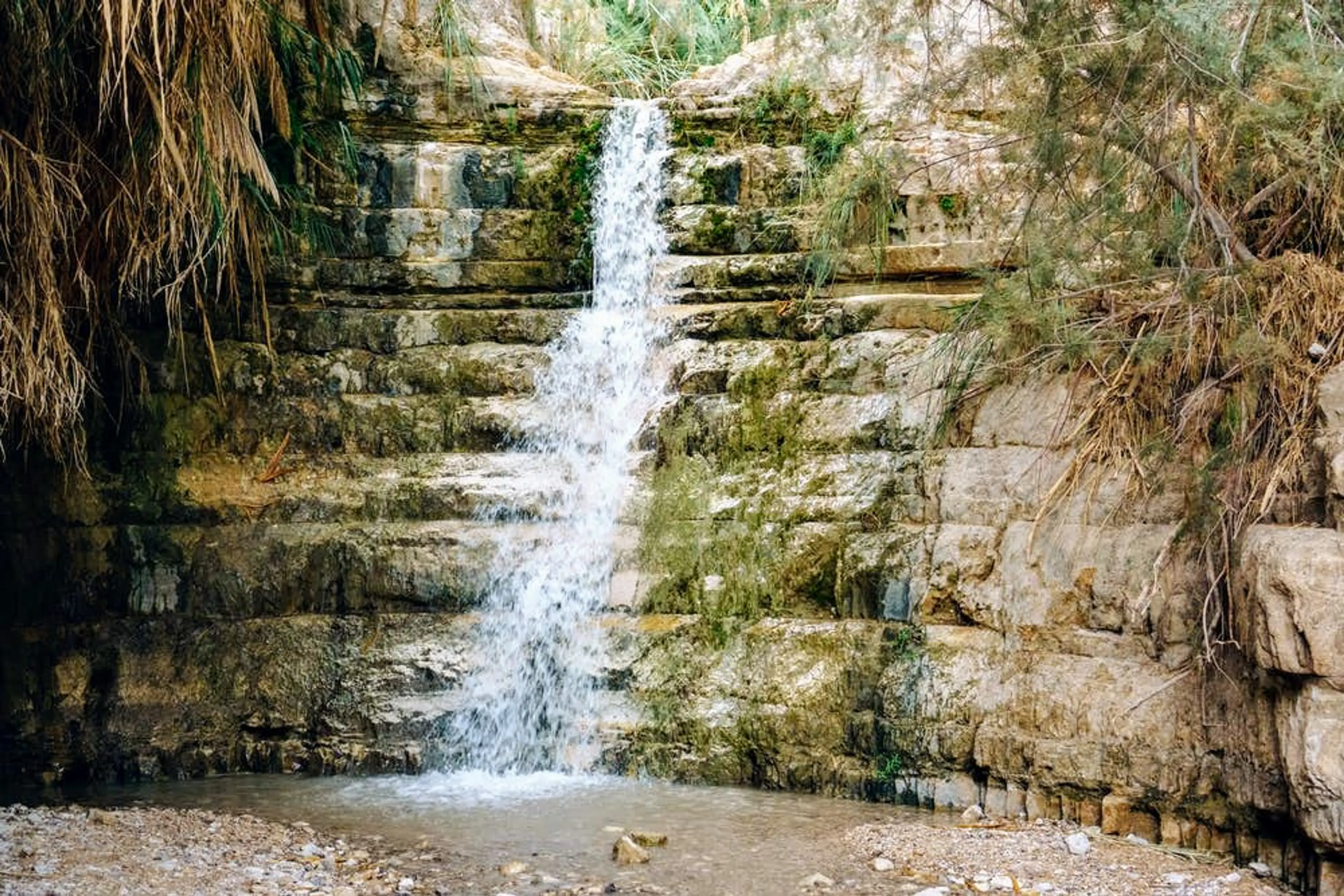
Dead Sea
Salt lake bordered by Jordan to the east and Israel and Palestine to the west.

Haifa
Port city with beautiful gardens and a bustling downtown area.

Masada
Ancient fortification on a rock plateau with a museum and cable car.
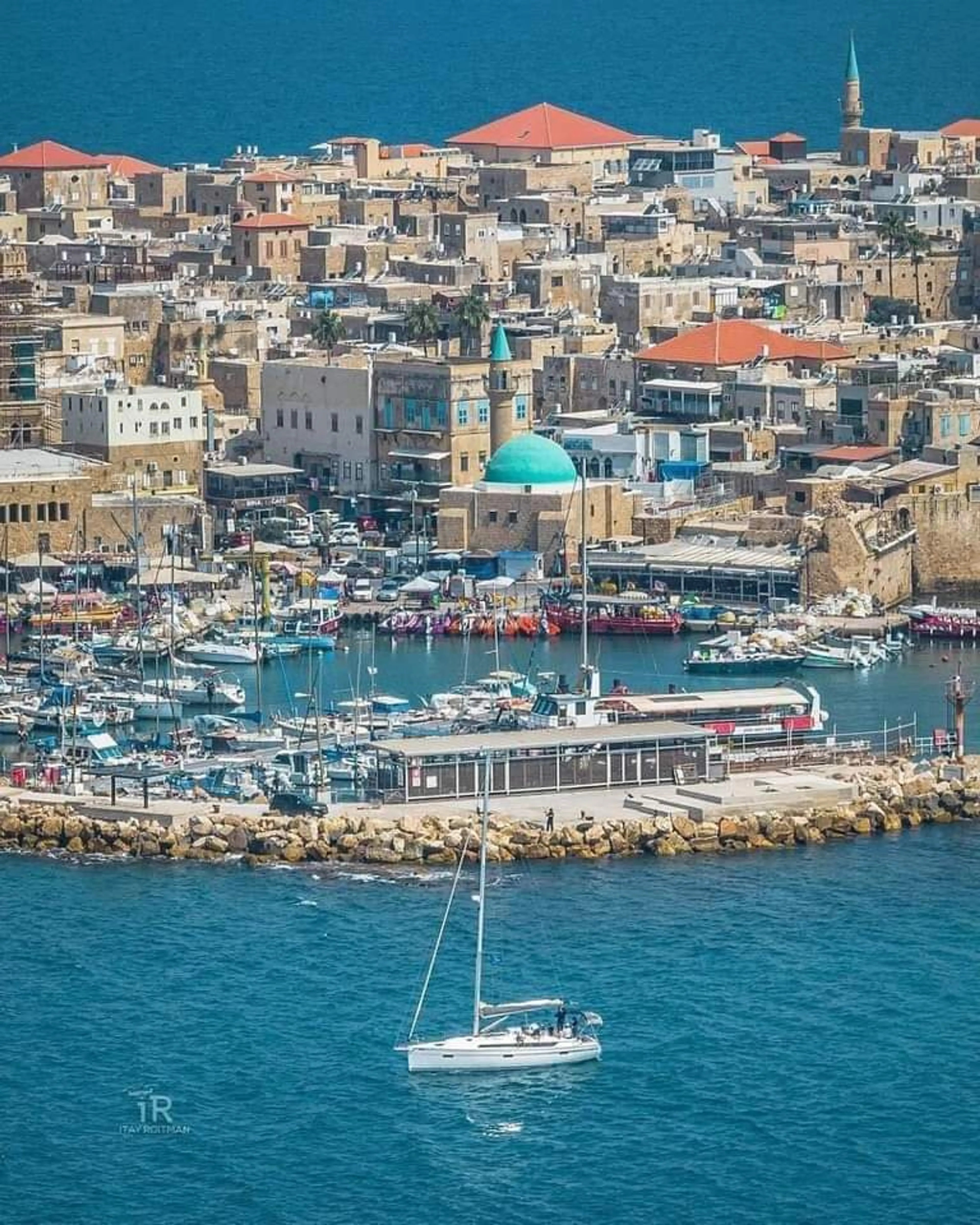
Acre (Akko)
Historic city with a well-preserved old town, harbor, and underground Crusader city.
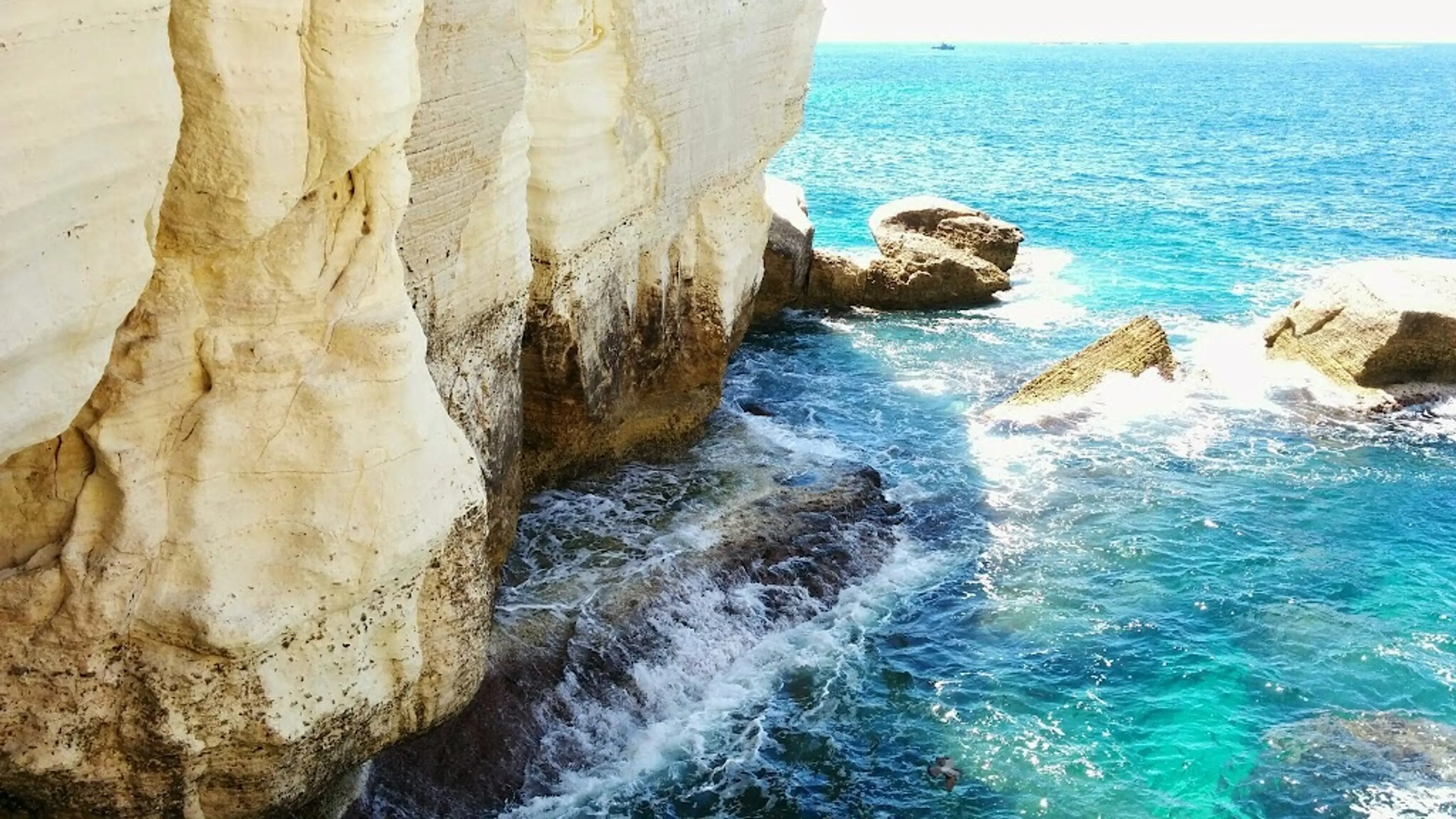
Rosh Hanikra
Geological formation with grottoes, a cable car, and views of the Mediterranean Sea.

Ein Gedi
Nature reserve and oasis with hiking trails and waterfalls.
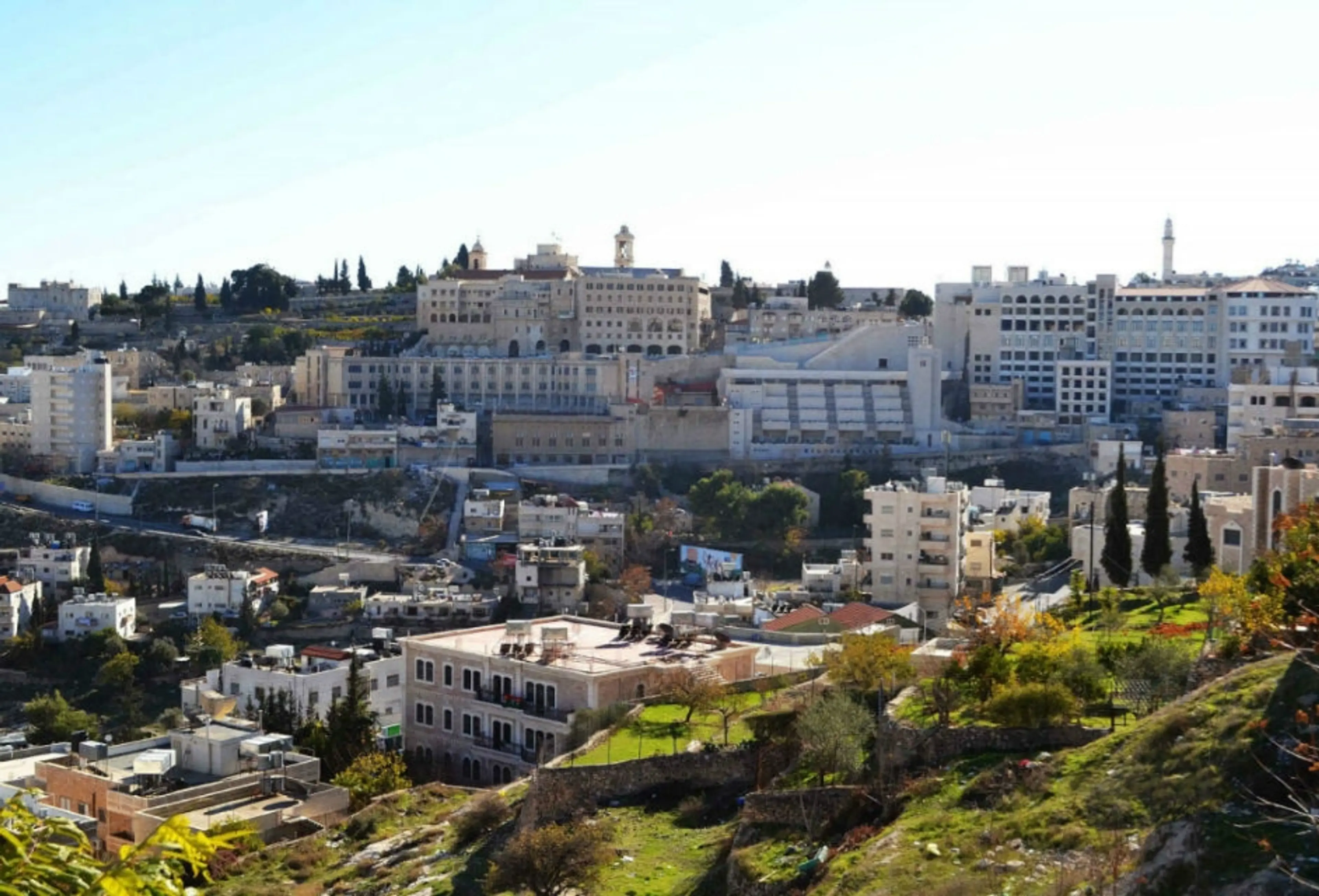
Bethlehem
Historic city known as the birthplace of Jesus.
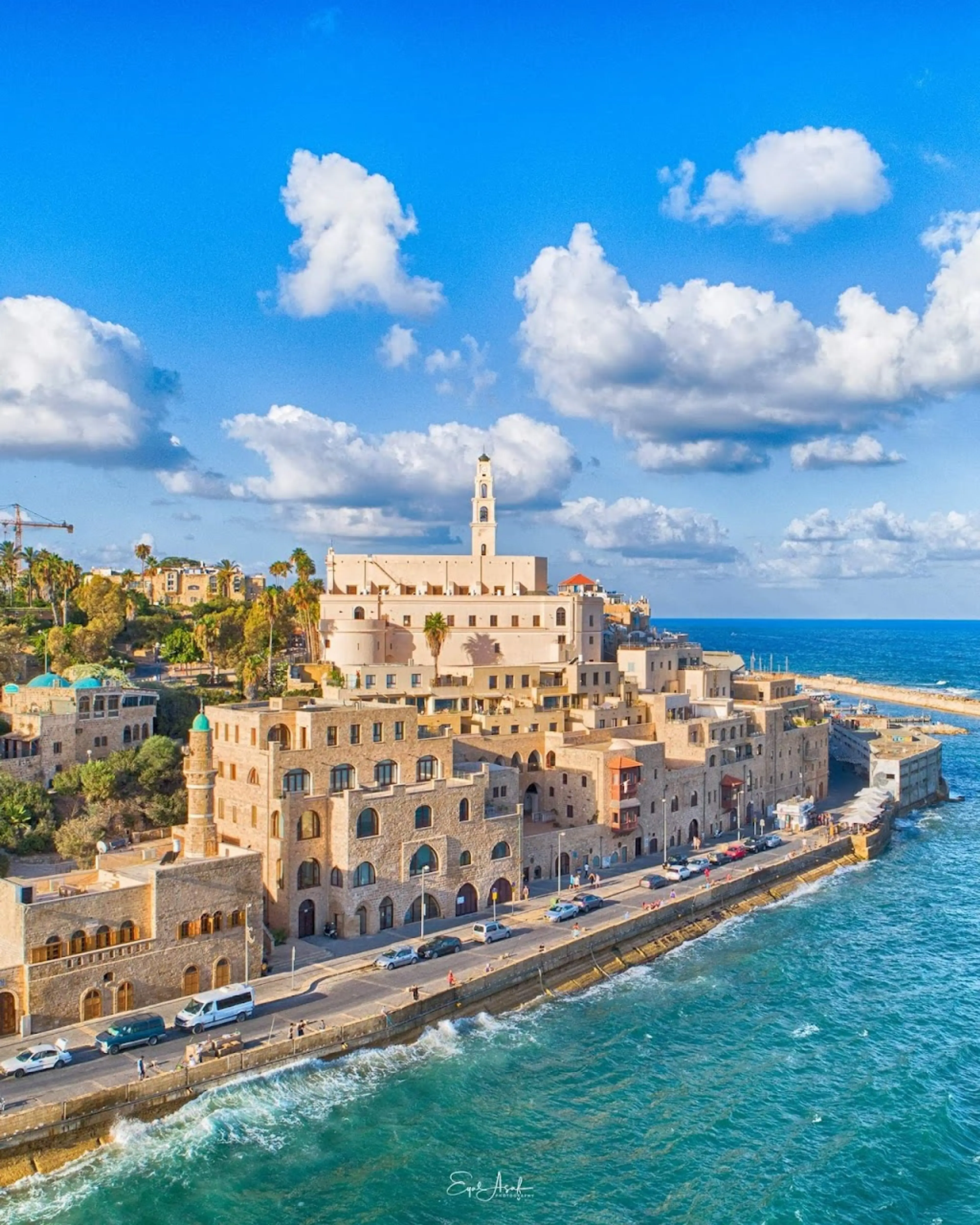
Jaffa
Ancient port city with a flea market, galleries, and a historic clock tower.